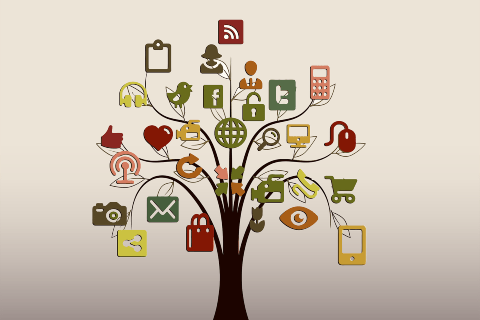By Jo Causon, CEO, The Institute of Customer Service
We have recently published an important piece of research that looks at the extent to which organisations are managing to create omnichannel environments for their customers and how successful they are being in delivering more personalised experiences.
Called ‘Upfront and Personal’, the report underlines the exciting potential that technology holds for businesses to gather more information about their customers, offer more seamless and joined-up services, and develop new opportunities to drive profitable business.
However, our research finds that as yet most businesses have not created a genuinely omnichannel offering. Rather, they have multiple channels side by side that are not always sewn together. In fact, of the managers and employees across a range of business functions we surveyed, just 7% believe they offer their customers a fully integrated channel experience.
The fact is that becoming genuinely omnichannel is hard. For 83% of the managers and employees we surveyed, it is something that they admit their organisation is still working towards.
But what I found even more interesting in our research relates to the other side of the coin: data. One of the chief benefits to businesses of creating an omnichannel environment is supposed to be that this will enable them to more easily capture and analyse customer data, from which they can then offer more targeted and personalised services.
As part of our research, we surveyed more than 1,000 customers and their feedback underlined some key principles that businesses need to take heed of if these efforts are to be a success.
Some of the principles are quite simple: don’t lose my data; keep it safe; and don’t give it to other organisations without my permission. Nearly 60% of customers feel negatively about organisations whom they believe pass their data to other organisations.
Most customers are happy to give organisations their data if that leads to rewards or special offers “but these must be relevant to them, and personalised around their own preferences and buying histories.
However, there is a significant group of customers (over 25%) who simply don’t want to engage with any form of data sharing. They would rather stay off the grid and only do business with organisations when they themselves choose to.
What’s more, over one in five of us admit to deliberately giving incorrect data to an organisation as a form of self-protection in case that data is misused or lost. For example, giving the wrong date of birth (DOB), knowing that having someone’s DOB can be a key piece of information for identity fraud.
This is a striking finding. It is surely an unsatisfactory state of affairs when a fifth of customers are consciously misinforming the organisations with whom they are doing business!
For me, this really underlines what I believe remains the key ingredient for success: trust. We may be talking about highly sophisticated technology to gather and analyse data, but if the customer does not trust the organisation they are dealing with, then the best technological capability in the world will not make the difference.
Successful customer interactions will always be dependent on a sense of relationship. The customer must feel that the business actually knows who they are, understands their preferences, wants to make doing business easy, and is not simply out to sell them as much as they can. They need to feel that the business has their best interests at heart and values them as a customer.
In addition to this, businesses must keep their interactions relevant. So, they need to apply sound judgement around what the data appears to be telling them. We already know that a fifth of customers give incorrect data. Organisations cannot blindly follow what the data says: there is a need to step back and ask, “Does this make sense? Does it feel right? How do we make sure we are applying the right judgements?” Customers that receive irrelevant or erroneous communications will quickly switch off.
Technology is taking us towards an exciting future. It is creating new possibilities. But its primary purpose must not simply be to create more sales opportunities. It must be driven by the desire to understand customers and so serve them better. That is how a business can improve customer trust, which should then naturally lead over time to higher sales by itself. That is a smarter way of doing business that will stand any test of time and will, I believe, ensure that an organisation is genuinely sustainable in a complex and demanding world.



